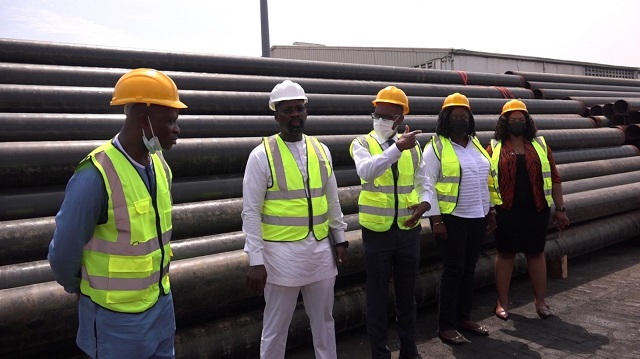About five thousand, four hundred (5,400) 12-inch pipes, expected to be used to expand the petroleum transportation line between Tema and Akosombo, have been delivered through the Port of Tema.
The pipes which cost Ghana about USD63.2 million, and an additional USD$8 million to refurbish them, will cover a distance of 70km.
The delivery of the said pipes had however been stalled for over 12 years since its procurement as a result of the Bulk Storage and Transportation Company (BOST) and the US supplier not being able to reach an amicable agreement to pave way for shipment.
When installed, it is expected to reduce the cost of transportation of Ghana’s bulk petroleum products drastically, while delivering 2 billion litres on an annual basis.
Installation of the pipes is expected to be done mid 2022 for about a period of 18 months.
Speaking to the press, during the official handing over ceremony, the Board Chairman of the Bulk Storage and Transportation Company (BOST), Ekow Hackman remarked that the company’s transformational agenda is clearly demonstrated through the arrival of the pipes in Ghana.
Mr. Hackman said, “I’d like to assure the general public the management and staff of the company that the Board would continue to support the management in the fulfilment of its strategic plan to turn the company into the strongest actor in the downstream sector of our part of Africa providing fuel security to the nation and others in the region.”
Managing Director of BOST, Edwin Provencal, revealed that the installation of these lines is in line the company’s strategy to improving the proportion of product volumes carried through the cheapest transportation channel.
He said, “this arrival could not have come at a better time than now when the reactivation of the Bolgatanga depot for export has made it more than necessary for high volumes of petroleum products to be transferred between Tema and Akosombo for onward distribution to Buipe through our river barges to meet the surging demand in the Northern sector as well as the landlocked countries.”
